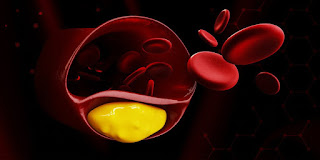CHOLESTEROL:
High or Low---Prone to infectious diseases!!!
HDL cholesterol is the
High density lipoprotein cholesterol. The HDL is the form of lipid in which it
is transported in the blood. The HDL cholesterol is also called as “good”
cholesterol which seems to be a cause of getting infectious diseases such as
gastroenteritis and pneumonia. Amazingly, it has been found that, the low as
well as high HDL cholesterol leads to the high risk of hospitalization with an
infectious disease. A general population of Copenhagen of 100,000 individuals
was studied for 6 years and this result was concluded using national Danish
health registries. This research is published recently in the highest ranking
journal within cardiovascular disease i.e. European Heart Journal.
Possible
role in the immune system:
The past studies
indicate that the HDL plays a key role in maintaining the function of the
immune system and thus the vulnerability to infectious disease, but the
scientists have done this first study to inspect if HDL is linked with the risk
of infectious disease. Based on this study the authors are not able to report
that very low or very high HDL directly causes the infectious disease, whereas,
conversely they are not able to conclude out any direct connection either,
because this case is indicated from the genetic part of the study. This finding
indicated that the future studies on HDL will focus on cardiovascular diseases
as well as all infectious diseases.
Facts:
The rate of risk of infectious
disease is variable in low as well as high concentration of HDL i.e. 21% of the
population with low concentration were exposed to the risk of infectious
disease and 8% of the population with high concentration were at the risk of
infectious disease. In reference to the control group the risk of infectious
disease was 43% higher in the individuals with very high HDL and 75% higher in
the individuals with very low cholesterol.



Comments
Post a Comment